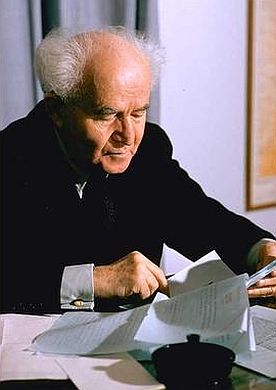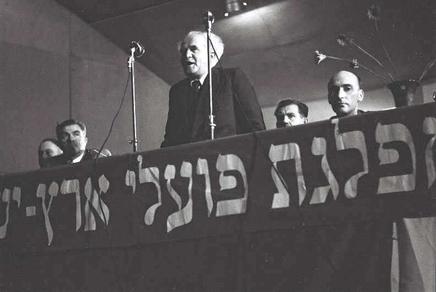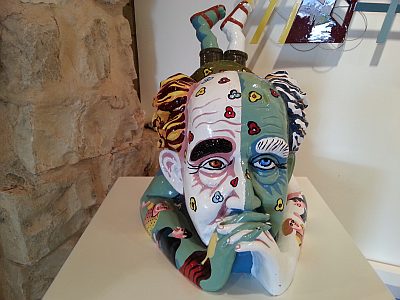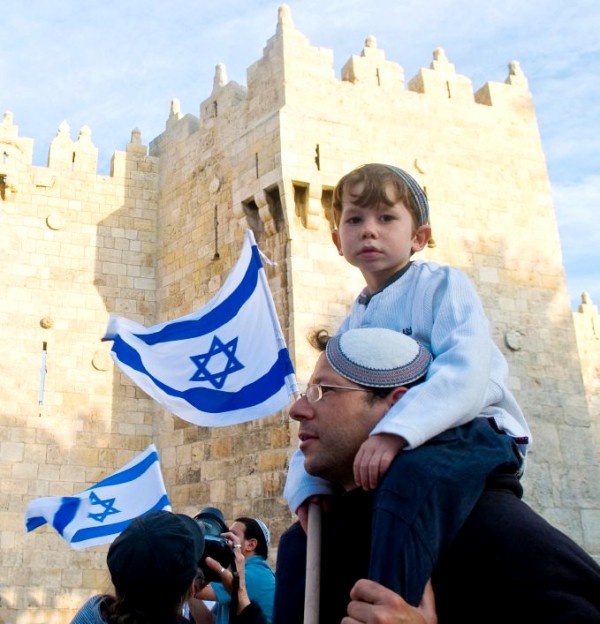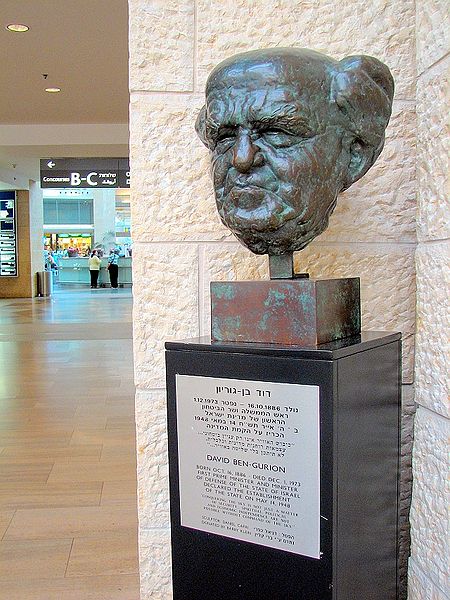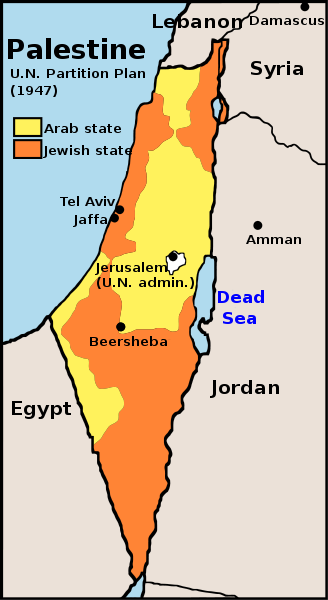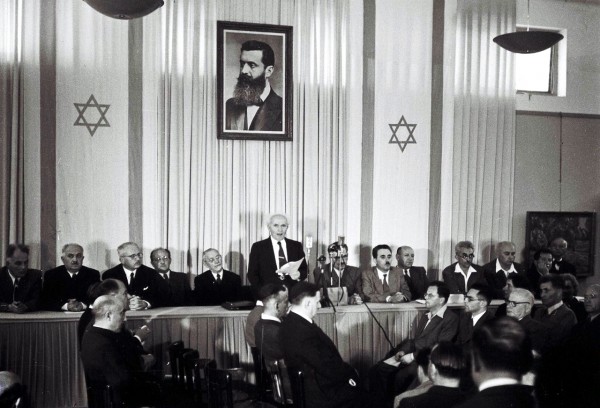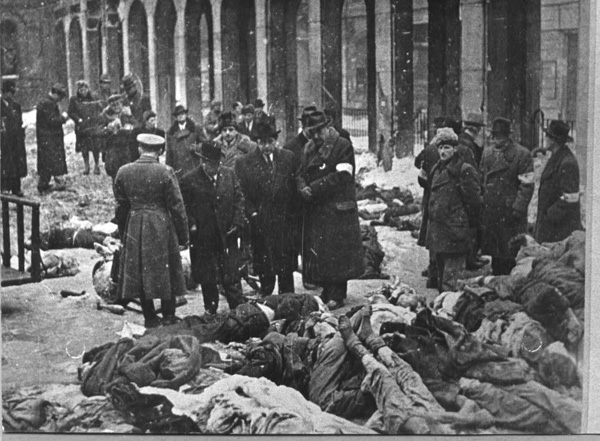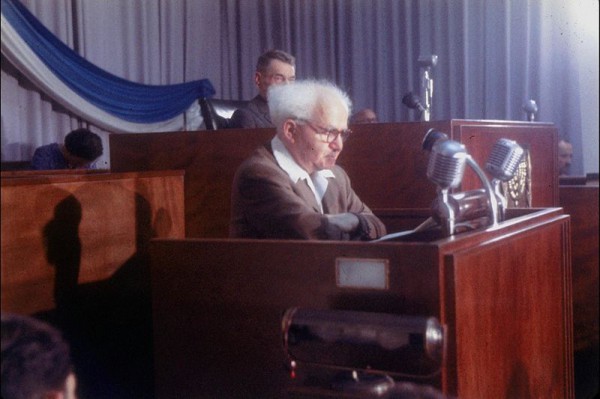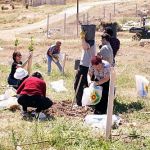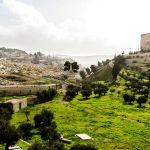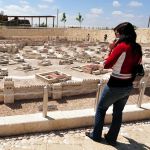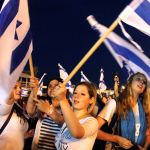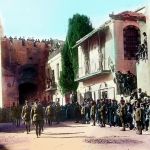“Can a country be born in a day or a nation be brought forth in a moment? Yet no sooner is Zion in labor than she gives birth to her children.” (Isaiah 66:8)
Yesterday was Ben-Gurion Day in Israel, and so we are remembering the life and vision of the Zionist leader, and Israel’s first Prime Minister David Ben-Gurion.
On the ashes of the Holocaust and the Jews returning to their Promised Homeland en mass, David Ben-Gurion became Israel’s founding prime minister in 1948.
It was Ben-Gurion who, on the heels of the Holocaust, declared the independence of the State of Israel on the last day of the British Mandate, May 14, 1948. The Jewish state was born in a single day, just as the prophet Isaiah foretold in Isaiah 66:8.
The Arabs promptly declared war with five armies encircling Israel, but Ben-Gurion provided strong and faithful leadership throughout the 1948 War of Independence. After a year of battle, Israel remained a sovereign nation.
Ben-Gurion also led the formation of the national institutions of Israel, and during Israel’s first national elections on January 25, 1949, he was elected prime minister in the First Knesset (Parliament). He would be re-elected in 1955.
David Ben-Gurion: Man of Vision
“By the rivers of Babylon we sat and wept when we remembered Zion.” (Psalm 137:1)
Ben-Gurion, a man of extraordinary and uncompromising vision, dedicated his life’s work to the return of the Jewish people to their Biblical homeland after 2,000 years in exile.
He seemed to understand that this mission would involve much more than human effort.
“Anyone who doesn’t believe in miracles is not a realist,” he once said.
Ben-Gurion, who was born David Gruen (Green) on October 16, 1886, in Plonsk, Poland, first came to pre-state Israel in 1906, at the age of 20.
He worked passionately in the Zionist cause, in time becoming head of the Jewish Agency and then president of the Jewish Agency Executive.
As such, he was on the front lines in fighting for an independent nation for the Jews.
It would prove to be an intensely difficult task.
The British Mandate and the White Papers
“I will plant Israel in their own land, never again to be uprooted from the land I have given them, says the LORD your God.” (Amos 9:15)
In 1922, the League of Nations entrusted Great Britain to oversee the establishment of a Jewish nation in the Land having formally recognized “the historical connection of the Jewish people with Palestine.”
The British government, however, under pressure from the Arabs, turned back on its commitment to the Jews and began to actively implement anti-Zionist measures.
It issued the White Papers of 1930 and 1939, which restricted immigration to Palestine and the purchase of land there by Jews.
This was particularly devastating as the Nazi Holocaust raged in Europe.
Ben-Gurion resisted the White Paper policies, encouraged increased Jewish settlement activity in the Land, and urged his people:
“We need to act as though we were the State in the Land of Israel, and we need to act as such until we will be, so that we will be the State in the Land of Israel…. We are standing before a major and tragic fight with the English government, but on this front we will not yield nor flinch even a bit.” (Knesset)
The Holocaust Becomes Public Knowledge
“I will bring Judah and Israel back from captivity and will rebuild them as they were before.” (Jeremiah 33:7)
In 1947, after the Second World War had ground to a halt, and after it had become public knowledge that millions of Jews had been slaughtered for no reason other than that they were Jewish, the United Nations adopted a resolution that Palestine would be partitioned into one land for the Jews, and one for the Arabs.
Though the piece of land being offered was tiny, the Jews jumped at the chance to have their own state—with Ben Gurion in the lead.
Even though he accepted the plan, this visionary leader foresaw the challenges and problems that lay ahead.
Writing in his diary about the UN decision, Ben Gurion wrote:
“People were dancing in the streets, and a large crowd gathered in the courtyard of the Jewish Agency building. To tell you the truth, the joy was not a part of me — not because I didn’t appreciate the decision of the UN. Rather, I knew what was to come — war with all of the Arab armies.”
Nevertheless, as the British announced that the end of their Mandate in Palestine would take effect on May 15, 1948, leaders of the Zionist movement and Hebrew community made plans to proclaim their own nation.
Ben Gurion had the idea to name the new state “Israel,” and he made the Declaration of Independence during a ceremony at the Tel Aviv Museum of Art on May 14, 1948.
Reflecting the history and struggle of the Jewish people, Ben Gurion announced the birth of the Jewish state with these stirring words:
In Eretz Israel [the Land of Israel] arose the Jewish people, in which was formed its spiritual, religious and national image, in which it lived official sovereign life, in which it created national and universal cultural treasures and bequeathed to the world entire the eternal Book of Books…
The Holocaust which befell the Tribe of Israel in recent times, in which were led to slaughter millions of Jews in Europe, proved anew succinctly the necessity of a solution to the problem of the Jewish people lacking homeland and independence through the renewal of the Jewish state in the Land of Israel, which will open wide the gates of the homeland to every Jew and will grant the Jewish people the stature of a nation of equal standing within the family of nations…
We hereby declare the establishment of the Jewish State in the Land of Israel, she is the State of Israel….
Victory against All Odds
“I will restore the fortunes of Jacob’s tents and have compassion on his dwellings; the city will be rebuilt on her ruins, and the palace will stand in its proper place.” (Jeremiah 30:18)
Ben Gurion was right about the Arab armies.
The Arab nations refused to accept the Partition Plan. And neighboring Arab countries would not accept a Jewish state in their midst.
On May 15, 1948, hours after the fledgling State was created, the armies of Egypt, Syria, Jordan, Iraq and Saudi Arabia attacked it.
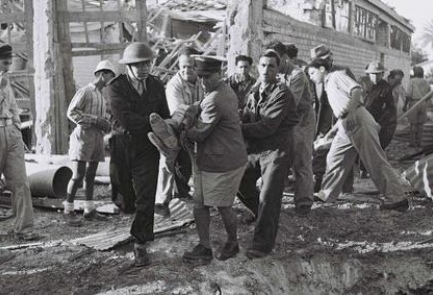
Haganah volunteers evacuate a man wounded in Egypt’s bombardment of Tel Aviv during the War of Independence.
In response, Ben Gurion formed the Israel Defense Forces (IDF) by joining together the paramilitary group Haganah and militant groups Irgun and Lehi.
The year-long War of Independence was underway. Against all the odds, victory was finally secured, though 600,000 Israelis lost their lives.
After this first war, in his capacity as Prime Minister, Ben Gurion set about helping to develop the country’s infrastructure. He especially encouraged and presided over the absorption of the great number of Jews who began immigrating from across the globe in fulfillment of many end-time Bible prophecies.
“I will bring back my exiled people Israel; they will rebuild the ruined cities and live in them. They will plant vineyards and drink their wine; they will make gardens and eat their fruit.” (Amos 9:14)
The Desert Blossoms: Settling the Negev
“This company of Israelite exiles who are in Canaan will possess [the land] as far as Zarephath; the exiles from Jerusalem who are in Sepharad will possess the towns of the Negev.” (Obadiah 1:20)
Ben Gurion had a special passion for Israel’s Negev Desert.
He longed to see it developed and felt that this empty space should house and settle large numbers of new immigrants making Aliyah (immigrating to Israel).
To lead the way, Ben Gurion, after leaving office in 1953, moved with his wife, Paula, to a humble home on the Sde Boker kibbutz, a pioneering community of young families established in the heart of the Negev in 1952.
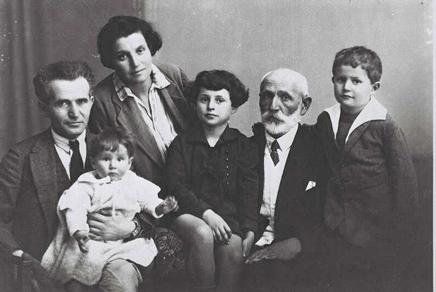
David Ben-Gurion and Paula with youngest daughter Renana on Ben-Gurion’s lap, daughter Geula, father Avigdor Grün and son Amos, 1929.
On Kibbutz Sde Boker in the northern Negev Mountains, the 67-year-old statesman insisted on working as an agricultural laborer with the other members of the community.
He believed that making the desert bloom would take the effort of all Israelis:
“This life as a simple citizen and laborer has its benefits not only for the person himself but perhaps also for his country. After all, there is room for only one Prime Minister, but for those who make the desert bloom there is room for hundreds, thousands and even millions.
“And the destiny of the state is in the hands of the many rather than of a single individual. There are times when an individual feels he should do those things which only can and should be done by the many.”

In this famous 1957 photo, David Ben-Gurion, 71, is doing a headstand on a beach in Herzliya. It was no stunt. Ben-Gurion was a devotee of the Feldenkrais Method, designed to improve physical function. (Photo by Paul Goldman)
Ben Gurion also inspired the creation of the Sde Boker Midrasha (place of learning), which presently boasts 12 important scientific and educational institutions, as well as a thriving residential community deep in the Negev.
Speaking of the Midrasha, in 1965, Ben Gurion said, “We seek to build a scientific research and teaching center which will be a source of moral inspiration and courage, rousing people to a sense of mission, noble, creative and fruitful.”
Although Ben Gurion would be called back to lead the government in 1955, he and his wife, Paula, maintained their “hut” in Sde Boker, to which Ben Gurion eventually retired in 1970. He died at the kibbutz on December 1, 1973.
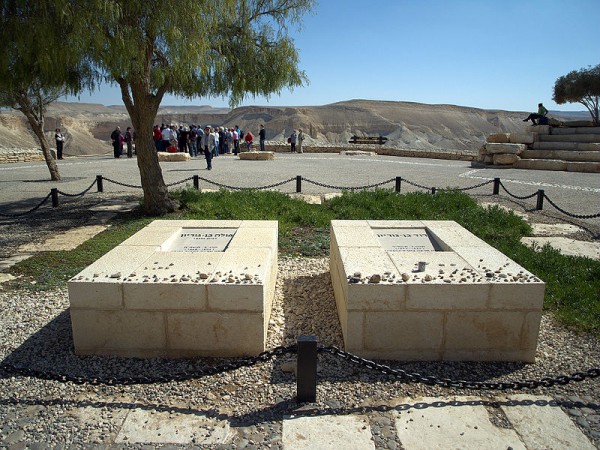
The graves of Paula and David Ben-Gurion at Midrasha Ben- Gurion, an educational center and boarding school in Sde Boker.
Always foreseeing the time to come, this remarkable leader once said that Israel would fulfill God’s calling and purpose for Israel:
“Suffering makes a people greater, and we have suffered much. We had a message to give the world, but we were overwhelmed, and the message was cut off in the middle. In time there will be millions of us — becoming stronger and stronger — and we will complete the message.” (Time)
Former Prime Minister Benjamin Netanyahu echoed these sentiments, saying:
“Our ability as a collective to determine our own destiny is what grants us the tools to shape our future — no longer as a ruled people, defeated and persecuted, but as a proud people with a magnificent country and one which always aspires to serve as “Light Unto the Nations.”
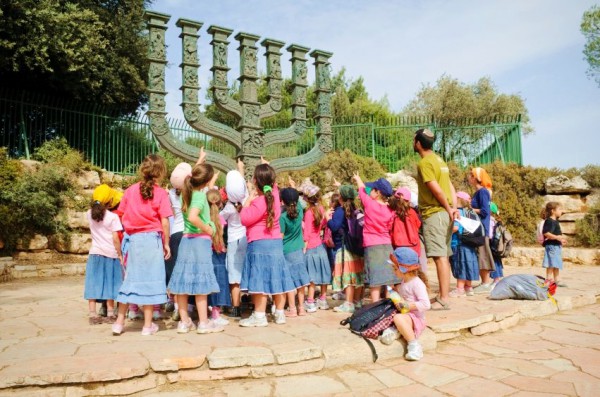
Israeli school children examine the engraving of some 30 important events, idioms, characters and terms from the Jewish history that is depicted on the Knesset Menorah.
While Ben-Gurion and Netanyahu’s longing for Israel to fulfill its mandate to be a light to the world may seem lofty to some, in actuality this is God’s plan.
It has been fulfilled in Yeshua HaMashiach (Jesus the Messiah), the Jewish Messiah who is the Light of World. (Isaiah 42:5-7; John 9:5)
Israel has fulfilled this mandate and in the time to come will fulfill this calling in even greater measure when it nationally recognizes Yeshua.
“And I will pour out on the house of David and the inhabitants of Jerusalem a spirit of grace and supplication. They will look on Me, the one they have pierced, and they will mourn for Him as one mourns for an only child, and grieve bitterly for Him as one grieves for a firstborn son.” (Zechariah 12:10)
The physical restoration of Israel foreshadows greater miracles: the spiritual restoration of Israel and the physical return of Yeshua to Israel as King Messiah.




